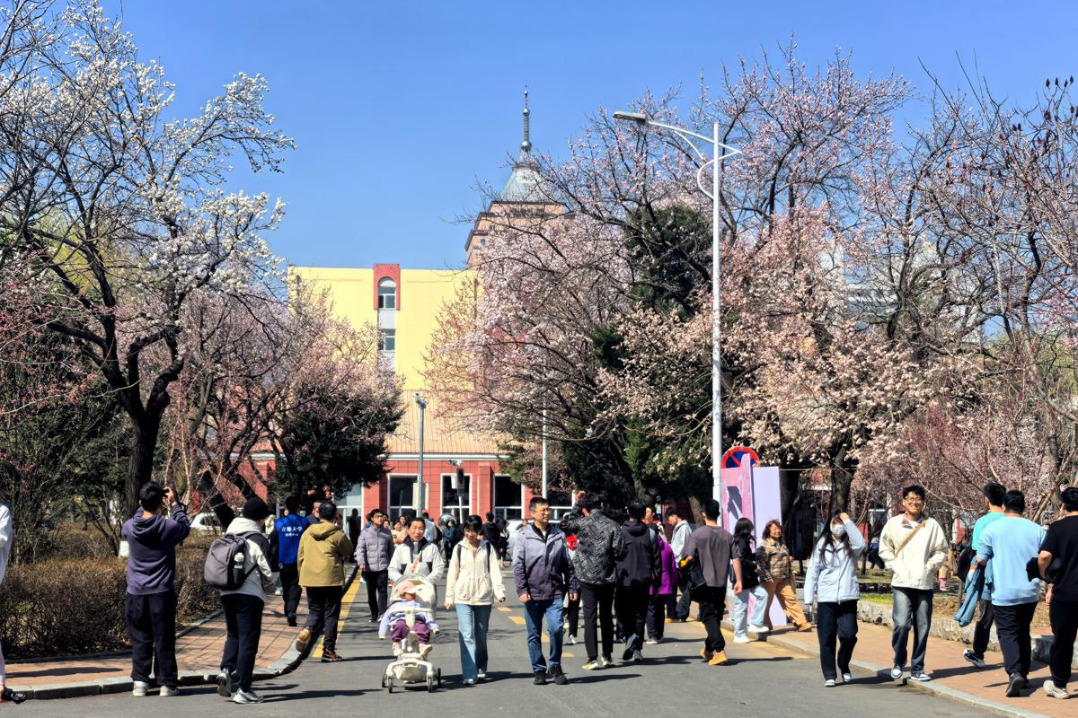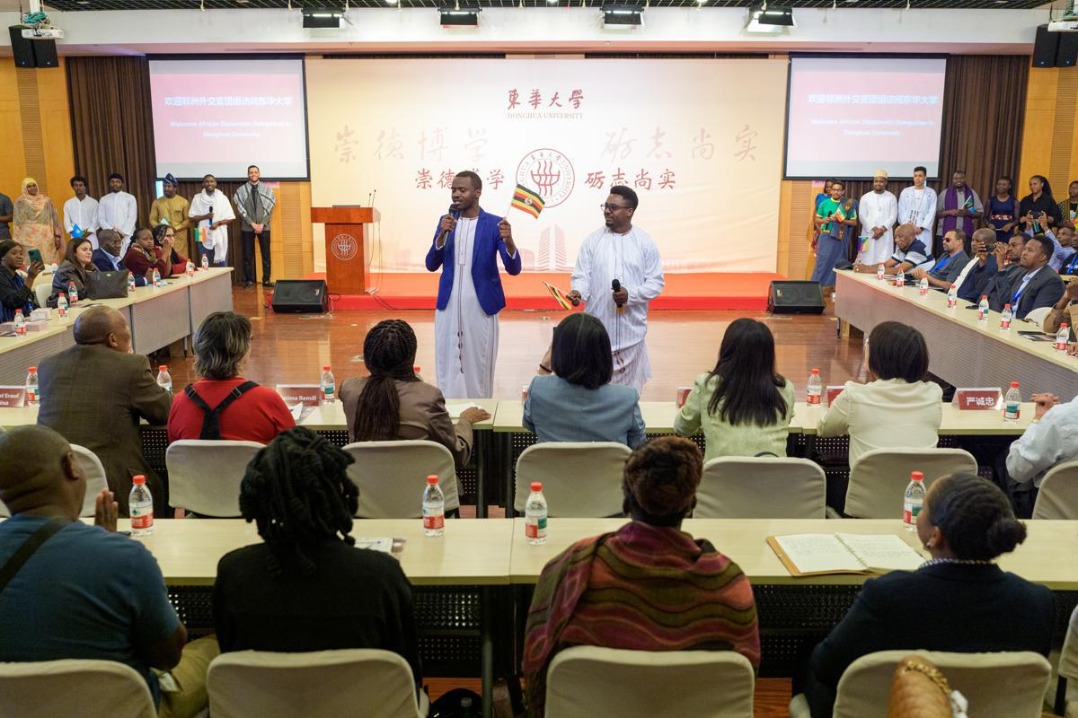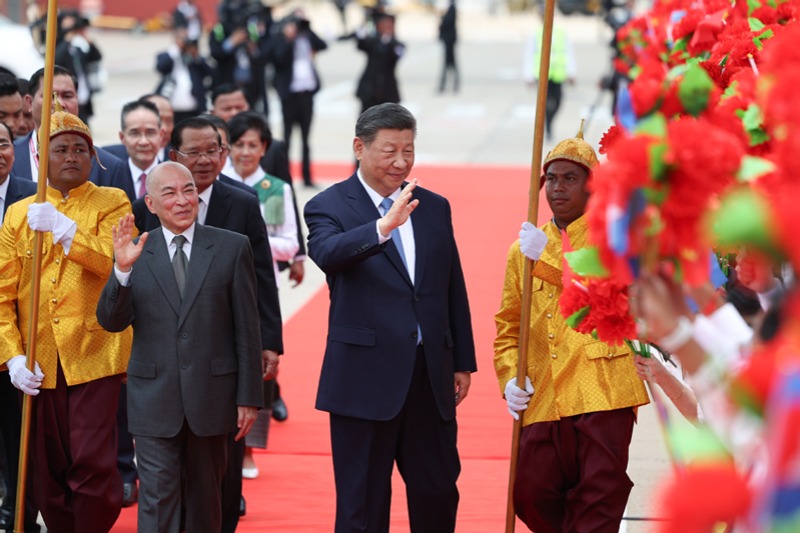Data bank solves riddle in ceramic dating


NANCHANG — When Ton Letwory, a seasoned ancient ceramic collector from the Netherlands, acquired an intricately painted porcelain plate over a decade ago, he was told it was a piece from the Qing Dynasty (1644-1911).
But something about its design — the swirling motifs, the brushwork — made him suspicious that it might be older. "The style reminded me of early to middle Ming Dynasty (1368-1644) porcelain," he said.
Determined to solve the mystery, he subjected the plate to multiple scientific tests in the Netherlands and Britain, including X-ray fluorescence and thermoluminescence analysis.
Yet the answers remained elusive — until his quest connected him remotely with researchers at the Jingdezhen Ancient Ceramic Gene Bank of the Jingdezhen Imperial Kiln Institute. The ceramic gene bank is a pioneering initiative launched in June 2022 in Jingdezhen, the world-renowned "porcelain capital" in Jiangxi province.
This is no ordinary research center. The imperial kilns in Jingdezhen witnessed the pinnacle of global ceramic production from the 14th to 19th centuries — their wares now gracing the halls of the Palace Museum, British Museum and Metropolitan Museum of Art.
By comparing Letwory's data against 17 meticulously selected imperial kiln specimens from the two dynasties representing a nearly 500-year continuum, researchers at the institute concluded that the plate was only a late Qing folk kiln piece that borrowed techniques from multiple eras.
"It's a fascinating hybrid," said Weng Yanjun, director of the institute. "The flame pearl motif resembles early-to-mid Ming styles, while the seasonal flowers match mid-to-late Qing aesthetics. The double-ring foot, a technique unseen in imperial kilns but popular in Kangxi-era (1662-1722) folk kilns, is particularly intriguing."
To confirm their findings, researchers in Jingdezhen conducted X-ray fluorescence tests on imperial kiln samples, extracting data on yellow, green and purple glazes and flux agents. "We're now awaiting matching quantitative data from the Netherlands on the plate to complete the analysis," Weng said.
Letwory's plate is just one small test case for what could become a groundbreaking resource in global ceramics research.
The ceramic gene bank, a collaboration between the Jingdezhen Imperial Kiln Institute and institutions such as Tsinghua University and the Palace Museum, is built on nearly 20 million ceramic fragments unearthed from the remains of Jingdezhen's former imperial kilns. These layers of discarded porcelain — some over 10 meters thick — stand as silent testimony to centuries of experimentation and relentless pursuit of perfection.
Unlike intact museum pieces, which are too precious to dissect, these fragments are a goldmine for researchers.
"A single ceramic fragment becomes a trove of data. Surface patterns can be studied, fragments pieced together to reconstruct original forms, cross-sections analyzed to understand clay composition, materials ground for chemical testing, and even firing temperatures determined," Weng explained.
Armed with electron microscopes, Raman spectrometers and an array of precision instruments, researchers are collecting data from each ceramic fragment to methodically build what they call a "genetic map" of ancient China's porcelain heyday.
The project has already cataloged about 10,000 specimens from the Ming imperial kilns, with plans to complete genetic profiling of all excavated Jingdezhen ceramic specimens within years, according to Weng.
The gene bank's impact extends far beyond authentication. In late 2022, a research team led by Peking University professor Cui Jianfeng confirmed that artisans in Jingdezhen had begun blending Persian cobalt, known as "Smalt blue", with local ores to achieve deeper, more vibrant blues as early as the Xuande reign (1426-1435) of Ming. While Ming-era texts had hinted at this practice, it had never been scientifically verified until then.
Analyzing 275 ceramic shards from the three dynasties of Yuan (1271-1368), Ming and Qing, researchers documented — for the first time — the two materials coexisting at a microscopic level.
The discovery underscores how Jingdezhen, even 600 years ago, was a hub of globalization, with its workshops solving complex technical challenges using materials sourced from thousands of miles away.
In 2023, Jingdezhen took another bold step by launching the Society of International Ceramic Studies in cooperation with 89 institutions across 22 countries and regions.
Simon Heijmans, a Dutch radio host, facilitated Letwory's inquiry through the society. He expressed his honor at the collaboration with the Jingdezhen Imperial Kiln Institute, noting the significance of international experts uniting behind this shared scholarly pursuit.
"For me, learning about Chinese ceramics means learning more about the history of China," Heijmans said.
The plate's attribution, though not what Letwory had hoped, reveals a deeper truth about the gene bank. While the flawless museum pieces represent porcelain's crowning achievements, these shards capture the messy yet magnificent creative process that brought them to life.
Xinhua





































